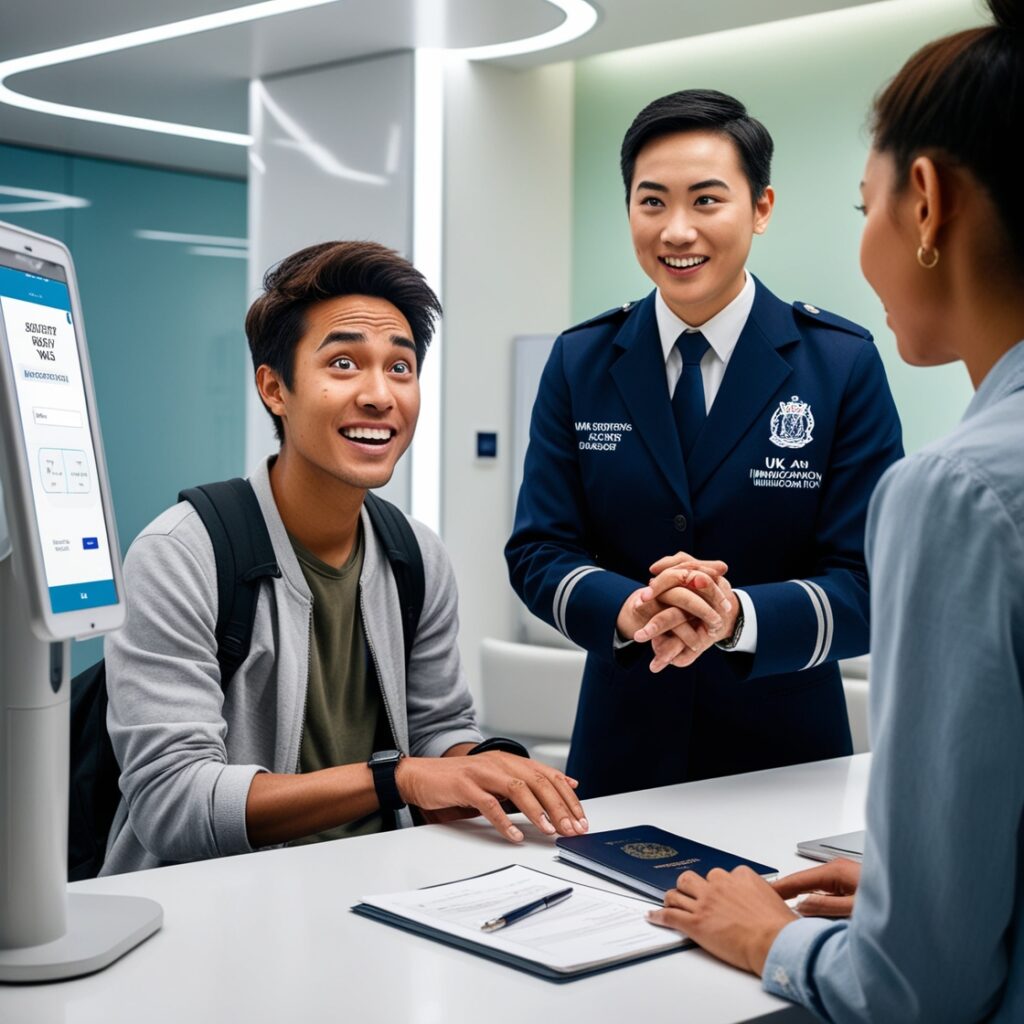The UK is home to some of the most prestigious universities globally, making it a top choice for students worldwide. However, before you can begin your studies, you’ll need to secure a student visa. The UK student visa processing time can vary depending on your location and the specifics of your application. To help you plan effectively, this guide provides a detailed breakdown of the typical timelines, tips to expedite your application, and steps to avoid unnecessary delays. With this information, you can ensure that your journey to studying in the UK starts on the right foot.
- 1. Introduction
- 2. What is a UK Student Visa?
- 3. Typical UK Student Visa Processing Times
- 4. Factors That Affect Processing Times
- 5. How to Check Your Visa Application Status
- 6. Tips to Speed Up Your UK Student Visa Process
- 7. What to Do If Your Visa Is Delayed or Rejected
- 8. Frequently Asked Questions (FAQs)
- 9. Conclusion
1. Introduction
For students aspiring to study in the UK, understanding the UK student visa processing time is a critical part of planning their academic journey. Whether you’re enrolling in a world-renowned university or pursuing specialized courses, securing your visa on time ensures a smooth transition. This guide is designed to help international students navigate the complexities of visa timelines and prepare effectively.
The UK student visa processing time can vary depending on factors such as the time of year, the completeness of your application, and your location. Being informed about these timelines is essential for organizing travel arrangements, accommodation, and your start date for courses. This article aims to provide clarity and actionable insights into the visa process.
Delays in the UK student visa processing time can disrupt your plans, causing unnecessary stress and expenses. By understanding the typical timelines and steps involved, you can take proactive measures to ensure a successful application. Read on to discover a comprehensive guide to navigating the UK student visa process.
2. What is a UK Student Visa?
A UK student visa allows international students to live and study in the United Kingdom. It is specifically designed for those pursuing higher education courses such as undergraduate, postgraduate, or research programs. Understanding the UK student visa processing time is crucial for planning your journey and ensuring you meet all deadlines.
To qualify for a UK student visa, applicants must meet eligibility criteria, including securing an offer from a licensed UK educational institution and demonstrating financial stability. Familiarity with the UK student visa processing time can help you align your application process with your course start date.
Different types of student visas are available depending on your age and course type, including the General Student Visa (Tier 4). The UK student visa processing time for each type may differ, making it important to understand which one suits your needs and its associated timeline.
3. Typical UK Student Visa Processing Times
The standard UK student visa processing time for international applicants is usually three weeks (15 working days) from the date of biometrics submission. However, this can vary based on your country of application and the time of year, such as peak admission periods. Knowing this timeline helps you plan your next steps efficiently.
For those in urgent need of their visa, the UKVI offers priority and super-priority services, which can significantly reduce the UK student visa processing time. These services come at an additional cost but are ideal for students facing tight schedules or unexpected delays.
If you are applying from within the UK, the UK student visa processing time may be slightly longer or shorter depending on the type of service you select. Standard applications usually take up to eight weeks, while priority services aim to complete processing in five days.
4. Factors That Affect Processing Times
The UK student visa processing time can be influenced by various factors, including the accuracy of your application and supporting documents. Missing or incorrect information can lead to delays, as additional verification may be required. Ensuring all documents are complete and error-free is vital.
Seasonal demand is another factor that affects the UK student visa processing time. During peak admission periods, such as August and September, applications may take longer to process due to the high volume of submissions. Applying early is a good way to avoid such delays.
Issues such as security checks or unresolved visa history can also contribute to longer UK student visa processing times. Being aware of these potential hurdles allows you to take proactive measures and address any concerns before submitting your application.
5. How to Check Your Visa Application Status
Once you’ve submitted your application, you might want to monitor the progress to stay informed about your UK student visa processing time. The UK Visas and Immigration (UKVI) department provides several ways to track your application, including online portals and email updates. Checking the status periodically helps you stay updated and plan accordingly.
To check your application status, you’ll need your reference number, which is provided at the time of application submission. This reference number is essential for contacting UKVI about your UK student visa processing time or any concerns you might have. Be sure to keep it handy for quick updates.
In case your visa processing takes longer than the standard UK student visa processing time, you can contact the UKVI via their official helpline or email service. Ensure you have all relevant details, including your reference number and personal information, when reaching out to expedite the process.
6. Tips to Speed Up Your UK Student Visa Process
Speeding up your UK student visa processing time starts with submitting a complete and accurate application. Double-check all required documents, such as your Confirmation of Acceptance for Studies (CAS), proof of financial stability, and English language test results, to avoid unnecessary delays.
Opting for priority or super-priority services is another effective way to reduce the UK student visa processing time. While these services come with additional fees, they ensure faster decision-making, often within 24 to 48 hours. This is particularly useful for students on a tight schedule.
Timing is key when applying for your student visa. Avoid submitting your application during peak periods, such as late summer, when processing delays are common. Applying early not only reduces stress but also ensures that your UK student visa processing time aligns with your academic start date.
7. What to Do If Your Visa Is Delayed or Rejected
If your visa processing exceeds the typical UK student visa processing time, don’t panic. Start by checking your email for any updates or requests for additional documents from the UKVI. Delays are often due to incomplete applications or the need for further verification.
In the event of a rejection, carefully review the reasons provided in the refusal notice. Common reasons for rejection include insufficient documentation, errors in the application form, or failure to meet financial requirements. Addressing these issues can help you reapply successfully and avoid prolonged UK student visa processing times.
For persistent delays or complicated cases, seeking professional assistance from an immigration advisor can be beneficial. They can guide you through the reapplication process, ensuring compliance with UKVI requirements and minimizing your UK student visa processing time.
8. Frequently Asked Questions (FAQs)
How long does it take to get a UK student visa? The standard UK student visa processing time is around three weeks for international applicants. However, this may vary depending on your location, application accuracy, and the time of year.
Can I expedite my UK student visa process? Yes, the UKVI offers priority and super-priority services that can significantly reduce the UK student visa processing time. These services are ideal for students facing tight timelines, though they come with additional costs.
What happens if my visa application is delayed? Delays in the UK student visa processing time may occur due to incomplete applications or high seasonal demand. Ensure your application is complete and consider contacting UKVI if the delay exceeds the standard processing period.
9. Conclusion
Understanding the UK student visa processing time is an essential part of preparing for your studies in the UK. Knowing the timelines, common delays, and ways to expedite the process can help you plan your academic journey more effectively.
By taking proactive steps, such as applying early, ensuring accurate documentation, and utilizing priority services, you can minimize potential hurdles. Being well-prepared can make all the difference in aligning your visa approval with your academic start date
We hope this comprehensive guide to the UK student visa processing time has provided valuable insights for your application process. With the right information and preparation, you can focus on the exciting opportunities that await you as an international student in the UK.



